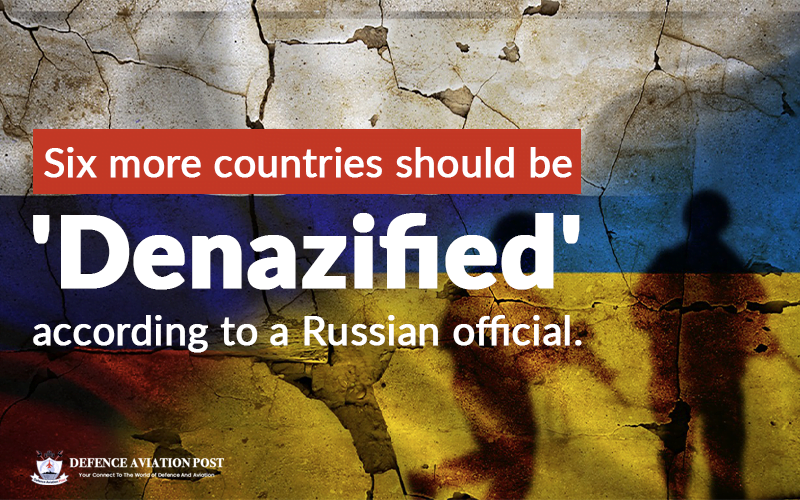Six More Countries Should Be ‘Denazified,’ According To A Russian Official

- Moscow City Duma deputy proposed that six more countries - Kazakhstan, Moldova, Poland, Lithuania, Latvia, and Estonia - be 'denazified.
- In the early 1990s, the Baltic states were fortunate enough to escape Russia's clutches. Estonia, Latvia, and Lithuania are EU and NATO members. As a result, people have more reasons to feel safe.
According to the NEXTA news organisation, a Moscow City Duma deputy proposed that six more countries – Kazakhstan, Moldova, Poland, Lithuania, Latvia, and Estonia – be ‘denazified.’ When Russia invaded Ukraine in the early hours of February 24, emotions across the former Soviet Union (FSU) ranged from fear to panic.
Through histories of dependency, physical proximity to Russia, or the presence of Russian-speaking minorities, FSU countries are once again exposed to the Russian imperial powers that oppressed them during the twentieth century.
In the early 1990s, the Baltic states were fortunate enough to escape Russia’s clutches. Estonia, Latvia, and Lithuania are EU and NATO members. As a result, people have more reasons to feel safe.
Countries embroiled in territorial conflicts with Russian-backed proxies, such as Moldova and Georgia, have raced to submit their own EU accession applications, fearful of escalating conflict with Russia.
With the noteworthy exception of Belarus, FSU countries have moved in unison to separate themselves from Russia, aware of their economic and energy vulnerabilities.
On 2 March 2022, a UN resolution demanding that Russia “withdraw all of its military forces from the land of Ukraine within its internationally recognised borders” was accepted by 141 votes in favour and 5 votes against, with Russia and Belarus voting in favour.
Ukraine, Moldova, the Baltic States, and Georgia backed the resolution. Other post-Soviet states avoided taking a firm stance. Azerbaijan, Turkmenistan, and Uzbekistan did not vote, but Kazakhstan, Armenia, Kyrgyzstan, and Tajikistan did.
Following Ukraine’s proposal to join the EU on February 28, Moldova and Georgia hastened to file their own bids for EU candidate status on March 3.
Irakli Kobakhidze, the chair of the ruling Georgian Dream (GD) party, stated that reforms planned for 2024 could have improved Georgia’s EU bid, but “given the overall political context and the current paradigm, Georgian Dream’s political team made a major decision to apply for EU membership immediately.”







Facebook Comments